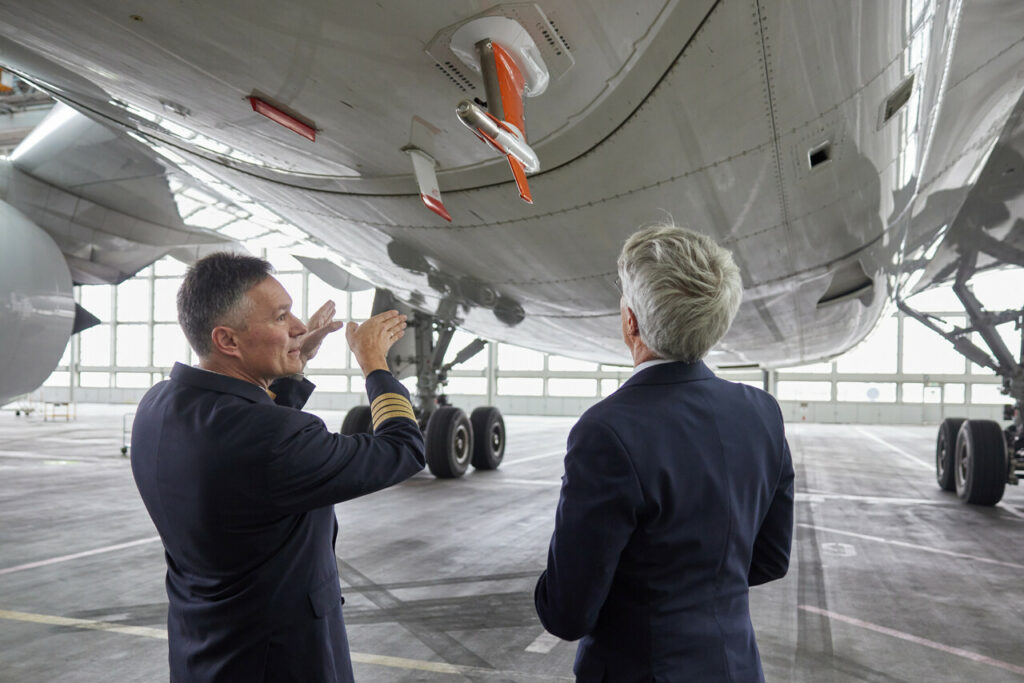Lufthansa Group has this week announced an exclusive project alongside the Karlsruhe Institute of Technology (KIT). Lufthansa has chosen one of its Airbus A350’s (registration D-AIXJ) to undergo specific modifications that will turn it into a ‘flying laboratory’.
The German carrier continues in its thirty year pursuit to support climate and weather research, by equipping special aircraft within its fleet with complex measuring equipment that supports European research infrastructure IAGOS-CARIBIC.
The abbreviation IAGOS-CARIBIC stands for “In-service Aircraft for a Global Observing System” and “Civil Aircraft for the Regular Investigation of the atmosphere Based on an Instrument Container.”
A unique project
“IAGOS-CARIBC helps to close an essential gap in our understanding of the climate system. With the high-precision measurements of many parameters, we can understand which atmospheric processes are changing.
The measurements further show altitude regions where most of the atmospheric radiation budget, i.e., the greenhouse effect, is generated and changed. We can thus identify process-specific errors and their causes in climate models and subsequently improve their predictive capabilities,” says Dr Andreas Zahn of KIT and coordinator of IAGOS-CARIBIC.
Project experts have successfully attached an extremely complex, tailor-made measuring probe to the lower fuselage of the jet.
Using an air inlet function and sensors for high-frequency and precision measurement of pressure and temperatures.
With the probe in position, Lufthansa pilots took to the skies over southern Germany to undertake a flight plan specially coordinated by certification authorities.
[monsterinsights_popular_posts_inline]

Ritter: Decades of supporting climate research
Commenting on Lufthansa’s determination to use their position in aviation to improve the future of the industry, CEO Jens Ritter said’: “We want to make flying more sustainable. That is why we have been supporting climate research for decades.”
“The conversion of our Lufthansa Airbus A350 into a climate research aircraft is a globally unique project in which colleagues from a wide variety of areas at Lufthansa have been working together with partners in science for years.”
“Our aim is to make a valuable contribution to climate research. The data that our aircraft will collect worldwide in the future will help to improve today’s atmospheric and climate models and thus their informative value for the future climate on earth.”
Over the coming months the project is going to build a two tonne measuring laboratory. Consisting of twenty further measuring instruments that will be loaded into the cargo hold of the scientific ‘guinea pig’ that is the A350.
Once complete, the next phase will be to load the measuring laboratory into the jet, and connect it up to the complex probe on the outer fuselage. Starting in 2024 the project will begin its data collection phase.
Additional duties for A350
As aircraft D-AIXJ carries out its daily duties flying paying passengers around the world, it will also be continuously recording over one hundred trace gases, aerosol and cloud parameters on its journey between the tarmac and up to the skies, up to highs of 13 kilometres.
Years of planning and development, and support from six other companies have made this ambitious project a reality. Lufthansa Technik, Airbus, Safran, enviscope, Dynatec and ACC COLUMBIA Jet Service have all had their part to play in the unique project.
“We are extremely grateful for Lufthansa’s great commitment and support,” concluded Zahn.









